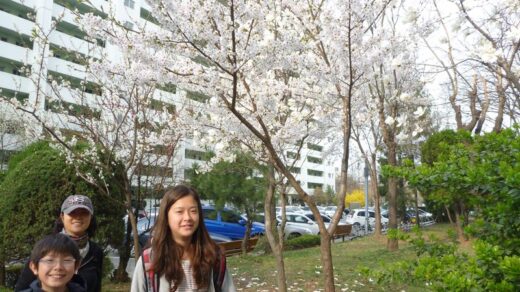 Tom Pinansky is Senior Foreign Attorney at Barun Law, as well as “Of Counsel” to US firm Prety, Flaherty, Beliveau & Pachios. Mr. Pinansky is active with various chambers of commerce in Asia, as well as international arbitration. He’s lived and worked in Korea for over 20 years.
Tom Pinansky is Senior Foreign Attorney at Barun Law, as well as “Of Counsel” to US firm Prety, Flaherty, Beliveau & Pachios. Mr. Pinansky is active with various chambers of commerce in Asia, as well as international arbitration. He’s lived and worked in Korea for over 20 years.
To listen to the interview, download the .mp3, subscribe in iTunes, read the transcript and/or discuss this interview and this topic with other members of Korea Business Central, visit the following discussion link: https://stevenbammel.com/category/archives/kbcforum/topics/korea-business-central-56 [EXPIRED LINK REMOVED: https://stevenbammel.com/category/archives/kbcforum/topics/korea-business-central-56]
The full list of interviews in the Korea Business Interview Series is maintained here: https://stevenbammel.com/post/kbc_korea_business_interviews
Main Points of the Interview
Topic #1 – Overview of the Korean Legal Services Market
- Tom has been based in Korea since around the time of the Seoul Olympics in 1988 following several years working for US-based law firms.
- Barun Law, Tom’s employer since 2005, is the newest major law firm in Korea, having been established only 11 years ago. The firm is particularly known for its litigation practice, having been founded primarily by former judges. However, Barun’s international practice is growing quickly too so that there are now 140 professionals at the firm.
- The Korean legal services market is unique considering the size and sophistication of the Korean economy. While most areas of commerce are fully open to foreign participation, the legal services area remains closed. It means that no international law firms are physically present in Korea.
- However, the Korea-US Free Trade Agreement (KORUS) will open the Korean legal services market once it is ratified by the US Congress. There is other legislation in the works in Korea to open the market to foreigners but the KORUS is what Americans are mainly waiting on.
- Just because non-Korean legal firms can’t open up physically in Korea doesn’t mean there aren’t a lot of foreign lawyers working in Korea. These run the gamut from Korean lawyers who are members of the Korean bar, to non-Koreans and ethnic Koreans who are members of the bar in other countries. Some work in Korean law firms and others in corporate settings.
- The titles that foreign lawyers can use in Korea depends somewhat on whether they are being expressed in English or Korean, and there is a lot of discussion going on about how this will evolve going forward so it’s hard to predict the future regarding the use of titles by foreign lawyers in Korea.
- Foreign lawyers cannot go into a Korean court alone to represent a client. But they can get involved with international arbitration, work with Korean colleagues on corporate and litigation matters, as well as other roles short of going to court.
Topic #2 – Foreign Investment and the Legal System
- The Korean legal system is a civil system as opposed to the US common law system, meaning there are no juries. This avoids complicated discovery and evidence rules that you’d find in the US. Foreign investments in Korea that have been made legally can be adequately protected, though you can’t deny that there’s a bit of a “home-court advantage” for Korean companies.
- Legal redress for foreign companies in Korea includes the court system, as well as arbitration. The Korean legal system is very efficient and results can generally be expected within nine and ten months, which is much faster than most jurisdictions in the United States.
- During the mid- to late-90s, Korea liberalized its economy and there were a lot of joint ventures and direct foreign investment for which legal services were needed. Mergers and acquisitions really took off during the Asian economic crisis of 1997-1998, followed by strategic investors. This faded for awhile as foreign companies had a renewed interest in establishing their own companies. But the more diverse range of investments has been coming back over the last two years or so. There’s also been a revival in private equity.
- Because the legal services industry is closed to non-Koreans, a foreign company wishing to do business in Korea will require a Korean law firm. Korea is a successful economy but in general, the costs of many services, including legal services, are more expensive in Korea than in most parts of the US.
Topic #3 – Korean Investments Overseas
- Korean investments overseas are called “outbound work” by Korea-based law firms. Weakness in the Korean currency over the past couple years sharply curtailed this activity but it is increasing again recently.
- High-profile recent outbound investments by Korean companies into the US include Kia’s car facilities in Georgia, Samsung’s semiconductor factory in Austin, Doosan’s acquisition of Bobcat, real estate deals in New York, etc. Koreans are also investing a lot in China and other resource-rich regions.
Topic #4 – Korean Law Firms
- The large Korean law firms have a core of internationally-trained lawyers with a broad variety of backgrounds and from a broad variety of jurisdictions. In many cases, Korea-educated attorneys are given the opportunity to study overseas and then come back to become partners in the firm that sent them. Tom is not aware of any non-ethnic Koreans who came to Korea, passed the Korean bar and are practicing in Korea as a local Korean attorney.
Topic #5 – Opening of the Korean Legal Services Industry
- The Asia-Pacific Council of American Chambers of Commerce (APCAC) consists of 27 member AmChambs in the Asia-Pacific region, and AmCham Korea is the respective member for Korea. Tom has chaired this organization for two of the last 15 years, though he’s been affiliated closely with it during this entire time. APCAC and AmCham Korea have been lobbying hard for the passage of KORUS, in part because of the opening it will bring to the Korean legal services industry. KORUS would help nearly all American businesses and the current delays on the US side are allowing other countries to move ahead into the Korean market.
- Regardless of KORUS, the Korean economic opening is inevitable though and there isn’t much opposition to it anymore.
- Interestingly, though legal services are still closed, Korea is relatively open in many other areas, including real estate, whether residential or commercial.
- Other Asian markets where the legal services industry is closed include Malaysia and India. Countries like Hong Kong, Singapore, Japan and even China have already liberalized. Japan today resembles what we might expect the Korean legal services market to look like in a few years.



